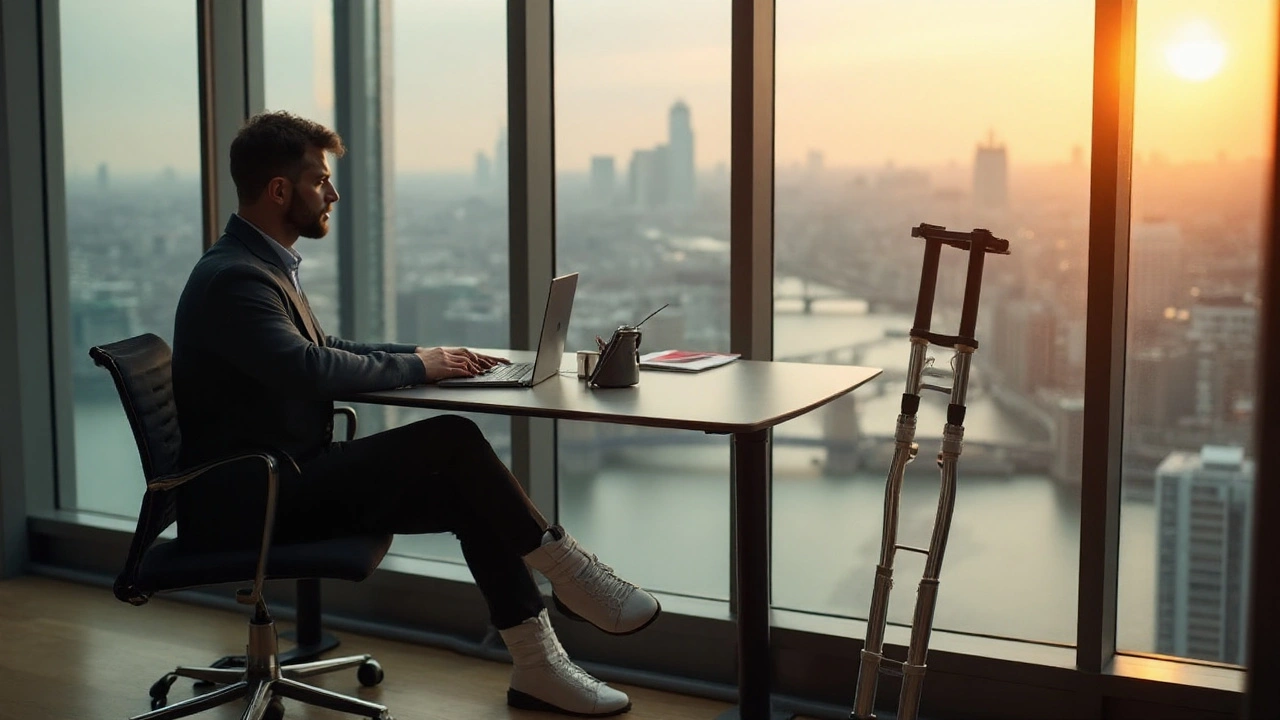
Workplace Injury: What to Do, How to Prevent, and Your Rights
Getting hurt at work is stressful, but you don’t have to feel lost. Knowing the basics can keep you safe, help you act fast if an accident occurs, and make sure you get the support you deserve. In this guide we’ll cover simple steps to lower the risk, what to do the moment you’re injured, and how the UK workers' compensation system works.
How to Reduce the Risk of Workplace Injuries
The first line of defence is prevention. Start by spotting hazards – slippery floors, heavy loads, poorly maintained equipment, or awkward postures. A quick walk‑through each shift can reveal problems before they cause an accident.
Give yourself the right tools. If you lift boxes, use a trolley or ask for help. Adjustable chairs, screen stands, and anti‑fatigue mats make repetitive tasks easier on the back and joints. When your employer provides training, pay attention. Real‑life demos on how to use a machine or lift safely stick in the mind far better than a dry brochure.
Keep the workspace tidy. Stacks of papers, cords, or tools left in walkways are invitation for trips and trips. A clutter‑free area reduces the chance of slipping, tripping, or getting caught.
If You’re Injured: Immediate Steps and Your Rights
When an injury happens, act quickly. First, stop what you’re doing and assess the damage. If it’s a cut, burn, or fall that needs immediate care, call 999 or go to A&E. For less urgent injuries, inform your supervisor right away – most companies have a formal incident report form you must fill out.
Document everything while it’s fresh. Write down where you were, what you were doing, who was nearby, and any equipment involved. Take photos if you can. This record is vital for any future compensation claim.
Seek medical attention even if the pain seems mild. Some injuries, like whiplash or a strained back, can worsen over time. A doctor’s report provides a clear diagnosis and links the injury to the workplace, which the employers’ insurance will ask for.
After you’ve been treated, notify your employer in writing that you’ve seen a health professional and that you’ll be following their advice. Keep copies of all medical receipts, prescriptions, and the doctor’s notes. In the UK, you’re entitled to statutory sick pay and, if the injury is serious, you may qualify for an injury benefit through the Department for Work and Pensions.
When it comes time to claim workers’ compensation, start the process early. Your employer should give you a “Employers’ Liability” form. Fill it out accurately, attach the medical evidence, and send it back promptly. The insurance company will review the claim and may request additional information – be ready to provide it.
Returning to work should be a gradual process. Talk to your GP about a phased return plan that matches your current abilities. Many employers offer modified duties or reduced hours to help you regain strength without risking re‑injury.
Remember, you have the right to a safe workplace. If you notice ongoing hazards, raise them with your manager or health and safety representative. If the issue isn’t addressed, you can contact the Health and Safety Executive for advice.
Keeping these steps in mind turns a potentially chaotic situation into a manageable one. Prevention, quick action, and proper paperwork are the three pillars that protect your health and your rights at work.
-
9 Sep






